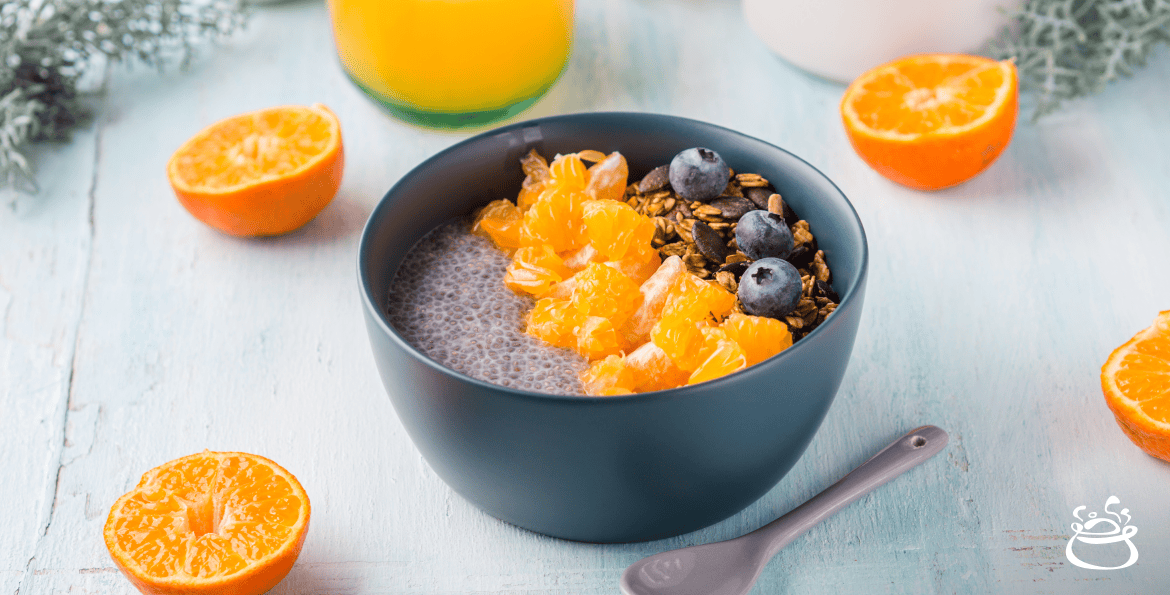What Are Chia Seeds Good For? Benefits, Taste, Safety, and Common Myths
What Are Chia Seeds and Why Are They Everywhere?
It usually starts the same way. You’re walking through the grocery store, minding your own business, and suddenly chia seeds are everywhere. On shelves. On smoothie cups. On packaging promising energy, digestion, and a better version of yourself.
Naturally, the question comes up. Are chia seeds good for you? Or is this just another health trend that looks better on Instagram than in real life?
The short answer is that chia seeds are real food with real benefits. The longer answer needs context, moderation, and a little honesty. That is what this guide is for.
What Are Chia Seeds Good For?
Chia seeds come from the Salvia hispanica plant and have been part of traditional diets for centuries. Their popularity today comes down to one thing. They pack a lot of nutrition into a very small serving.
So, what are chia seeds good for exactly?
- Supporting digestive health due to high fiber content
- Helping you feel full for longer
- Providing plant-based omega-3 fatty acids
- Adding minerals like calcium, magnesium, and phosphorus
They are not miracle food. But they are useful when included properly in a balanced diet.
What Do Chia Seeds Do for You?
If you are wondering what chia seeds do for you on a daily level, the effects are subtle but consistent.
They help regulate digestion, slow down blood sugar spikes when paired with meals, and support heart health through omega-3 fats. Because they absorb liquid and expand, they also contribute to satiety, which can help reduce unnecessary snacking.
The key is consistency and portion control, not overuse.
Chia Seeds Taste: What Should You Expect?
One of the most common practical questions people ask is about chia seeds taste.
Chia seeds are mild. Slightly nutty. Almost neutral. On their own, they do not have a strong flavor. What most people react to is texture, not taste.
- Dry chia seeds add crunch
- Soaked chia seeds become gel-like and soft
They take on the flavor of whatever they are mixed into, which is why they work best as a supporting ingredient rather than the star of a dish.
Are There Risks? Is Chia Seeds Dangerous?
Chia seeds are safe for most people, but misuse is where problems begin. So, are chia seeds dangerous? Not inherently. The risk comes from eating them incorrectly or in excess.
Dry chia seeds expand rapidly when exposed to liquid. Eating them dry and chasing them with water can increase the risk of choking. Overeating them without adequate hydration can cause bloating, gas, or digestive discomfort due to their high fiber content.
Moderation matters. One to two tablespoons per day is generally considered safe for most adults.
Common Myths Around Chia Seeds
Chia seeds are often marketed as a cure-all. That is where the hype goes too far.
They do not cancel out poor eating habits. They do not cause instant weight loss. And they do not replace balanced meals.
If you are asking is chia seeds good for you, the honest answer is yes, when used correctly and realistically. They are a helpful addition, not a shortcut.
Dish Ideas That Actually Use Chia Seeds Well
Knowing the benefits is one thing. Using chia seeds in real meals is another.
Here are practical ways chia seeds fit naturally into balanced dishes:
- Chia-crusted salmon or chicken for added crunch and healthy fats
- Yogurt bowls with soaked chia seeds for breakfast
- Chia-thickened soups or sauces instead of flour
- Flatbreads or crackers made with chia seeds for added fiber
This is where many people struggle. Healthy ingredients only work if they are part of meals, you can repeat consistently.
When to Hire a Private Chef Then?
Chia seeds are easy to buy but harder to use well every day. Many people know what are chia seeds good for yet still fall into the same cycle of skipping meals, repeating the same foods, or losing motivation to cook.
This is where hiring a private chef for weekly meal prep becomes practical, not indulgent.
A private chef from CookinGenie can build balanced meals that naturally include ingredients like chia seeds without overusing them. Instead of forcing superfoods into random recipes, meals are planned with nutrition, variety, and taste in mind across the entire week.
Healthy eating becomes structured instead of stressful.
Storage and Shelf Life: How Long Are Chia Seeds Good For?
Chia seeds are shelf-stable, but not forever. So, how long are chia seeds good for? When stored properly in a cool, dry, airtight container, they can last up to two years.
How to Know If Chia Seeds Are Bad
- A sour or rancid smell
- Bitter taste
- Visible moisture or mold
If any of these signs appear, discard them.
Final Verdict
Chia seeds deserve their place in a healthy kitchen, but not on a pedestal.
They support digestion, heart health, and fullness when used correctly. They can cause discomfort when misused. And they work best as part of a larger nutrition plan, not as a standalone solution.
If cooking balanced meals consistently feels overwhelming, hiring a private chef for meal prep can remove the friction entirely. The goal is not perfection. It is sustainability.
FAQs
Yes, in moderation. One to two tablespoons per day with enough water is considered safe for most people.
They support digestion, satiety, and heart health when paired with balanced meals.
They can be. Dry chia seeds expand quickly and may pose a choking risk. Always soak them or mix them into moist foods.
Up to two years if stored properly in an airtight container away from heat and moisture.
Check for rancid smell, bitterness, or visible mold. When in doubt, throw them out.
Yes. A private chef can use chia seeds thoughtfully across breakfasts, mains, and snacks without overuse.
Yes. A private chef helps maintain consistency, balance, and variety, making healthy eating easier to sustain.



 Settings
Settings
 Gift Card
Gift Card Blog
Blog Locate Us
Locate Us











 Home
Home
 Chefs
Chefs
 Chats
Chats
 My Order
My Order



